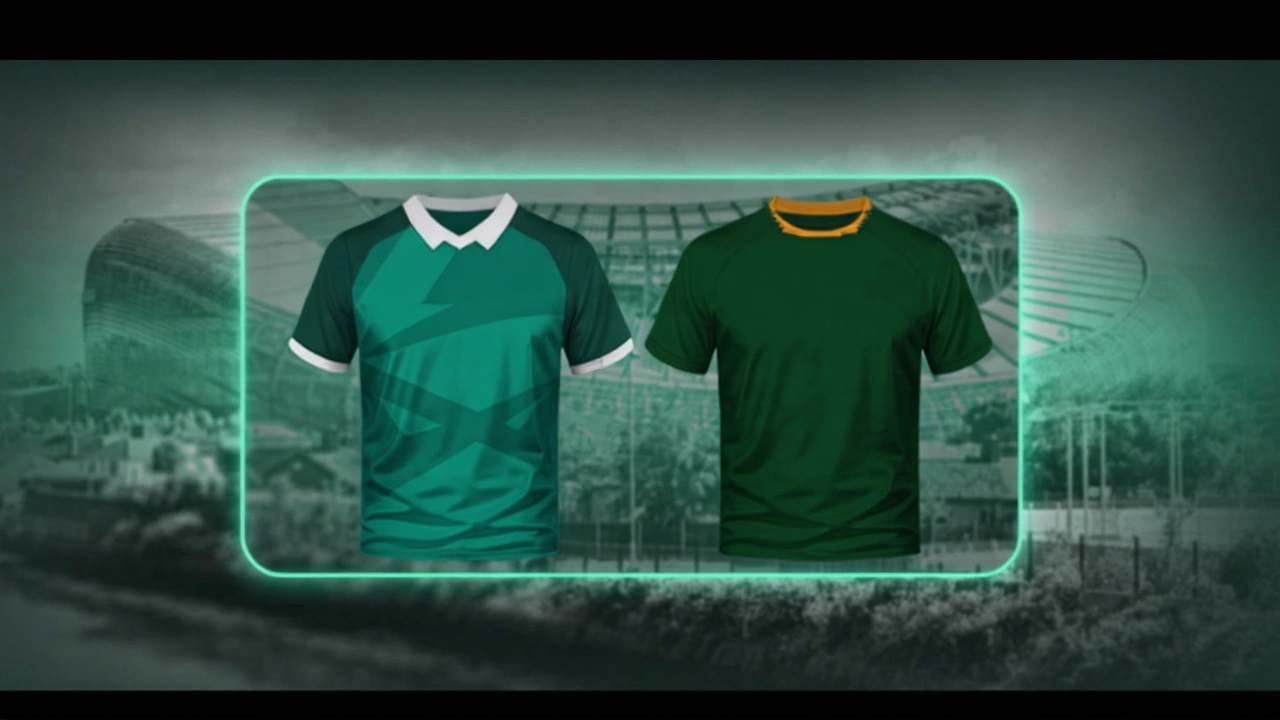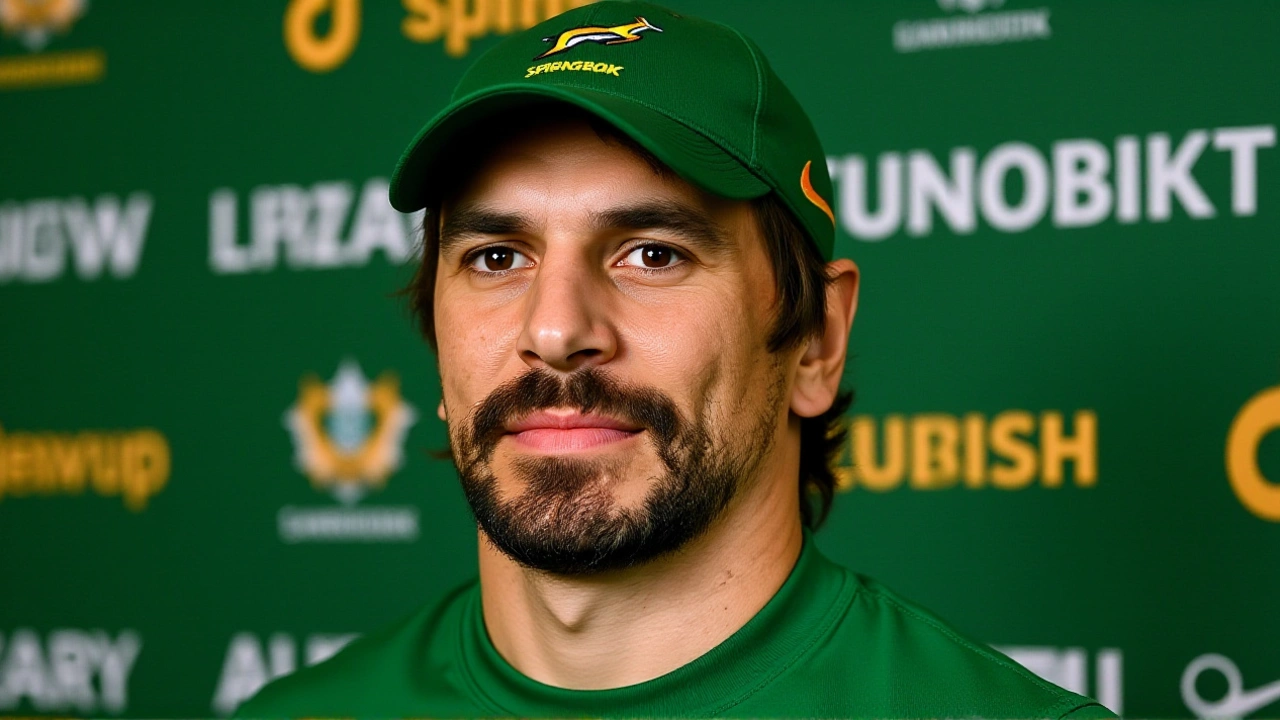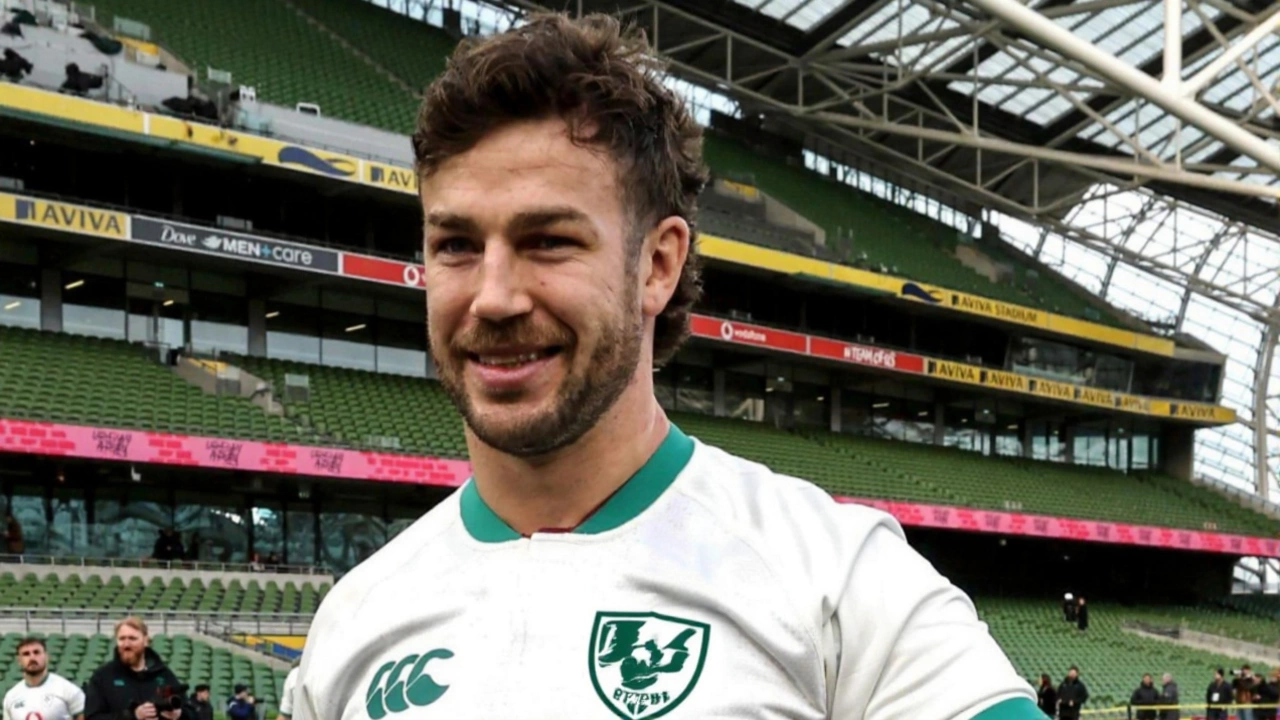
On a cold, rain-slicked evening in Dublin, the South African national rugby team finally conquered the Aviva Stadium — not with flair, but with grit, discipline, and sheer physical dominance. The Springboks beat Ireland 24-13 on Saturday, November 22, 2025, ending a 13-year winless streak in the Irish capital since their last victory here in 2012. It wasn’t pretty. It wasn’t easy. But it was historic.
Red Cards and Ruck Warfare: Ireland’s Defensive Collapse
Ireland entered the match as favorites. They’d won three of the last five meetings against the Springboks. Their coach, Andy Farrell, aged 49, had tinkered with the lineup, betting on 22-year-old fly-half Sam Prendergast over the more experienced Jack Crowley. But nothing prepared them for the storm that hit in the 22nd minute. James Ryan, Ireland’s 33-year-old lock and defensive anchor, was sent off for a dangerous cleanout on Malcolm Marx, the Springboks’ 31-year-old hooker. The tackle was borderline — but referee Matthew Carley saw it as a clear threat to player safety. Ireland, already struggling to contain the Springboks’ scrum, were now down to 14. By halftime, they’d been shown four yellow cards. One player was sin-binned twice. At one point, Ireland had just 12 men on the field. The numbers don’t lie: South African Rugby (SAR)’s scrum, anchored by props Wilco Louw (30), Thomas du Toit (29), and Gerhard Steenekamp (27), with Boan Venter (24) and Johan Grobbelaar (29) providing stability, became a relentless machine. Carley issued three yellow cards to Ireland in the first 40 minutes — all for scrum infringements. The Springboks didn’t need to score off every reset. They just needed to break Ireland’s rhythm. And they did.Scrum Power and Breakthrough Tries
The first try came from Springboks scrumhalf, who showed remarkable composure to dummy and dive over the line with Ireland down to 13 men. It was his 19th Test try — a quiet, efficient finish from a player who rarely steals headlines. The second try, sealed in the 58th minute, was pure brutality. Wilco Louw delivered a shoulder charge so violent it spun Irish fullback Sacha Feinberg-Mngomezulu (23) — wait, no. That’s not right. Sacha Feinberg-Mngomezulu was the Springbok fullback. Louw’s hit on Irish defenders created the space. Feinberg-Mngomezulu, a 23-year-old speedster, pounced on the confusion and sprinted 60 meters untouched. The try was the dagger. Ireland fought back. Prendergast kicked a penalty after returning from his sin-bin, cutting the lead to 24-10. Then, Dan Sheehan, the 28-year-old Irish hooker, powered over from a lineout drive. But the conversion by Crowley came too late. The damage was done.
“The Beer Tastes Better” — Erasmus on the Breakthrough
Post-match, Rassie Erasmus, SAR’s 52-year-old Director of Rugby, was characteristically measured. “It was a great win against a team like Ireland,” he said. “They’ve dominated us since we’ve been together as a group. Five games? They’re still three-two up. But tonight… the beer tastes a little better.” Erasmus didn’t downplay Ireland’s effort. “They were just as physical,” he noted. “They made tackles inside the 22. Turnovers. They didn’t back down.” He acknowledged the disciplinary toll — “We got lucky with the refs,” he joked — but stressed the win was earned through structure, not chaos. Captain Siya Kolisi, 33, echoed that sentiment. “Ireland are champions,” he said. “To beat them here, after all these years… it means everything.” Even Felix Jones, the Irish-born assistant coach now with the Springboks, had a quiet moment of respect. “I know their system,” he said. “I know their pride. To see them fight with 12 men… that’s rugby.”What This Means for the Future
This win isn’t just a trophy. It’s a psychological reset. Ireland had won the last five meetings since 2019. They’d beaten the Springboks in Johannesburg, Cape Town, and Dublin. Now, the narrative has shifted. South Africa has broken through. But the celebration is muted. The Springboks’ plane tickets are already booked. Over half the squad must fly to Japan to resume club duties. Others head straight into the Vodacom United Rugby Championship, which kicks off November 28. No rest. No recovery. Just another grind. For Ireland, the questions are louder. Why did the discipline collapse? Why did the scrum fail so badly? And why, with so much talent, did they allow a team to dismantle them with red cards and scrum pressure?
Historical Context: A Streak Finally Broken
The last time the Springboks won in Dublin was 2012 — a 26-22 thriller in the autumn series. Since then, Ireland had won three of four meetings. The 2018 win at the Aviva was iconic. The 2021 match, a 32-20 Irish victory, was a statement. This wasn’t just a win. It was a reversal of fortune. The Irish Rugby Football Union (IRFU), headquartered in Dublin, now faces a reckoning. Their young backs are brilliant. Their forwards? Under pressure. The scrum, once their strength, is now a liability. And the discipline? A ticking time bomb.Frequently Asked Questions
How did the Springboks’ scrum dominate despite Ireland’s physicality?
The Springboks’ scrum, led by Wilco Louw and Thomas du Toit, executed a precise, low-body technique that exploited Ireland’s fatigue and reduced numbers. With James Ryan red-carded early, Ireland’s second-row stability collapsed. Referee Matthew Carley penalized Ireland five times for scrum collapses — three yellows and two penalties — allowing South Africa to control territory without needing to run. The scrum became their primary weapon, not just a set piece.
Why was Sam Prendergast chosen over Jack Crowley?
Andy Farrell opted for Prendergast’s composure under pressure and his ability to manage the game with his feet. Crowley, while more experienced, had struggled with decision-making in high-intensity matches. Prendergast, though only 22, had impressed in the previous Test against the Springboks with his tactical kicking and calmness. His penalty goal in the second half showed why Farrell trusted him — but he couldn’t compensate for the team’s structural collapse.
What impact did the disciplinary issues have on Ireland’s performance?
Ireland’s five cards — one red, four yellow — forced them to play with 12 men for 17 minutes. That’s nearly a quarter of the match. With fewer bodies, their defensive lines stretched thin, especially in the scrum and ruck. South Africa capitalized on every turnover, turning Ireland’s desperation into points. The team’s ability to score was crippled; they only managed one try despite 13 phases inside the Springboks’ 22 in the second half.
How does this result affect the Autumn Nations Series standings?
The win lifts South Africa to third in the series standings, behind only New Zealand and France. For Ireland, it’s their first loss in the 2025 Autumn Nations Series, dropping them from top spot. The result also shifts momentum ahead of the 2026 Six Nations — South Africa now enters the next international window with confidence, while Ireland must address systemic issues before facing England and Wales.
Why is this win significant for South African rugby beyond the scoreboard?
This is the first time since 2012 that the Springboks have beaten Ireland in Dublin — a venue where they’ve lost their last five matches. More than the result, it proves they can win through grit, not just flair. With players heading to Japan and the URC, this victory proves their squad depth and mental toughness. It’s a statement: South Africa isn’t just a team that wins in South Africa. They can win anywhere — even when outnumbered and exhausted.
What’s next for both teams after this match?
The Springboks immediately disperse: 14 players fly to Japan for club commitments, while others join the Vodacom United Rugby Championship squad by November 28. Ireland, meanwhile, faces a short turnaround — they play Argentina in Dublin on December 6. Coach Andy Farrell will need to restructure his forward pack and address discipline before then. The pressure is mounting.





